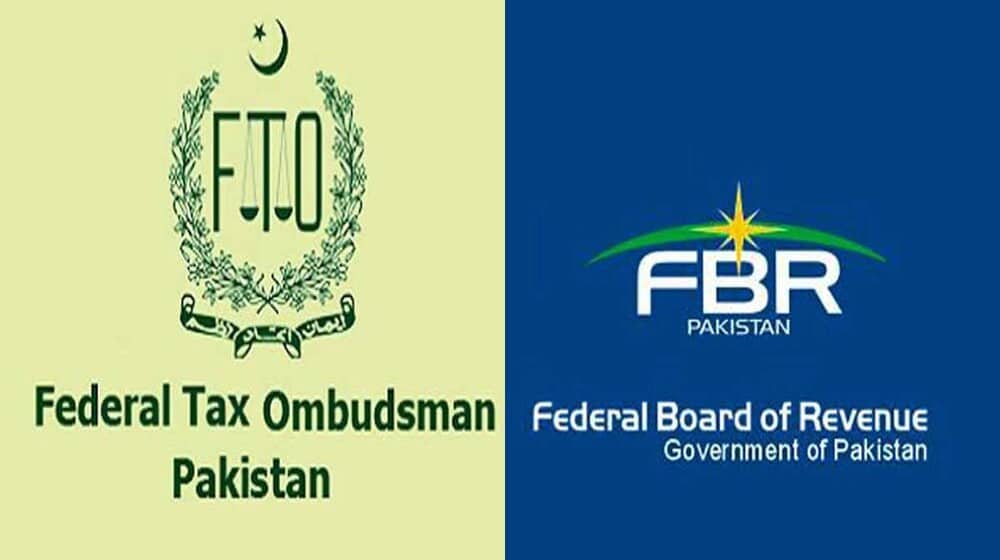ABSTRCT
The Federal Tax Ombudsman (FTO) of Pakistan plays a critical role in protecting taxpayers’ rights and ensuring transparency in the tax system. Many individuals and businesses face unjust treatment, delay in refunds, or harassment at the hands of tax officials. However, very few are aware of their right to seek redress through the FTO Secretariat. This article provides a detailed explanation of the complaint filing process before the FTO, including eligibility criteria, required documents, methods of submission (online and physical), and expected outcomes. It also addresses frequently asked questions and discusses the significance of using this forum instead of pursuing expensive and time-consuming legal routes. By understanding the basics of this process, taxpayers can assert their rights and contribute to a more just tax administration system.
KEYWORDS
Federal Tax Ombudsman (FTO), FTO Pakistan, Taxpayer rights, Maladministration, FBR complaints, Filing complaint FTO, Tax refund delays, FBR harassment, Tax grievance redressal, Online FTO complaint, Tax complaint process, FTO Ordinance 2000, Tax injustice, FTO jurisdiction, FTO decision, FTO complaint documents, How to file FTO complaint, FTO hearing, Tax audit discrimination, Corruption in FBR, FTO recommendations, Tax justice Pakistan, FTO Secretariat procedure, Role of FTO in Pakistan, Complaint against tax officer.
INTRODUCTION
What should a taxpayer do when they face injustice or harassment by tax authorities such as FBR? Can they challenge the system without going to court? Many Pakistani taxpayers face issues like unfair assessments, refund delays, discrimination, and unethical conduct by tax officials. Lacking awareness, most either stay silent or turn to costly legal action. To address this, the Government of Pakistan established the Federal Tax Ombudsman (FTO) under the FTO Ordinance, 2000—an independent body that resolves complaints against maladministration by the FBR. This article outlines the step-by-step process for filing a complaint with the FTO Secretariat.
WHO CAN FILE A COMPLAINT?
-Any taxpayer (individual, company, AOP, or non-resident) can file a complaint to the FTO.
- The complaint must be against FBR or its officials for misconduct or maladministration.
- No lawyer or tax consultant is required (optional if desired).
- A person not directly affected can also report serious maladministration through a written complaint.
WHAT COMPLAINTS CAN BE FILED BEFORE THE FTO?
The FTO deals with complaints related to maladministration, which is broadly defined to include the following issues:
Refund/exemption delays, Biased treatment, Negligence, Wrong tax demands, Harassment, Corruption, Rule violations.
WHAT DOCUMENTS ARE NEEDED?
- A written complaint explaining the nature of the issue and how they have been wronged.
- Copies of relevant evidence, such as:
- Tax notices or orders
- Refund applications or receipts
- Letters, emails, or replies from the tax office
- Any proof of harassment, if available
- A copy of Computerized National Identity Card (CNIC).
- A notarized affidavit confirming the truth of the complaint.
- If someone is filing on your behalf, they must also attach Power of Attorney or Authorization Letter.
HOW TO FILE A COMPLAINT?
There are two methods to file a complaint:
1. ONLINE FILING
- Visit the official FTO website: www.fto.gov.pk
- Click on the “Lodge Complaint Online” option.
- Fill in the form with your personal details and description of the issue.
- Upload the required documents.
- Submit the complaint and save the reference number for future tracking.
2. MANUAL OR PHYSICAL FILING
- Draft a complaint letter and attach the supporting documents.
- Submit it to the FTO Secretariat in Islamabad or any of the regional offices located in major cities.
- You may submit it personally or send it by post or courier.
WHAT HAPPENS AFTER YOU FILE A COMPLAINT?
1. ACKNOWLEDGMENT: The Secretariat sends an acknowledgment confirming receipt.
2. ADMISSIBILITY CHECK: The FTO examines whether the complaint falls within its jurisdiction.
3. NOTICE TO FBR: If admissible, the FTO sends a notice to the concerned department or officer for explanation.
4. INVESTIGATION: A detailed investigation is conducted, which may include hearings or request for more evidence.
5. DECISION/RECOMMENDATION: The FTO issues a decision, which may include:
- Direction to the FBR to correct the issue.
- Orders for refund or withdrawal of unlawful demand.
- Suggest disciplinary action against the responsible officer.
TIMEFRAME FOR DISPOSAL
The FTO usually resolves complaints within 45 to 60 days of admission, making it one of the quickest legal remedies available in Pakistan’s taxation system.
IS THE FTO DECISION BINDING?
While the FTO’s decision is not legally binding like a court order, it holds significant legal weight. The FBR is expected to comply, and in case of non-compliance, the matter can be referred to the President of Pakistan for further action under the FTO Ordinance.
WHY USE THE FTO INSTEAD OF COURT?
- Free of cost – No legal or court fees.
- Faster – Quick resolution without long delays.
- User-friendly – No complicated procedures.
- Effective – Leads to real administrative correction.
- Accessible – Open to all taxpayers without the need for a lawyer.
CONCLUSION
The Federal Tax Ombudsman is a powerful institution for ensuring justice in the field of taxation. It provides a convenient and cost-effective way for taxpayers to challenge unfair treatment, abuse of power, or inefficiency within the tax machinery. The process is simple, the outcomes are meaningful, and most importantly, it empowers the public to hold tax authorities accountable without the burden of traditional litigation. Therefore, every taxpayer must be aware of this right and make full use of this valuable institution.
A new culture of accountability begins when taxpayers raise their voice—and the FTO is here to listen.

